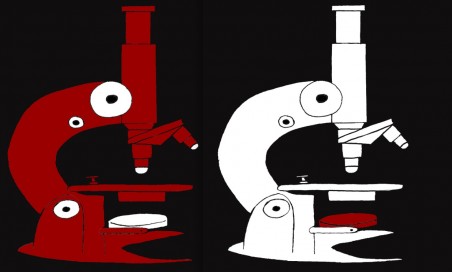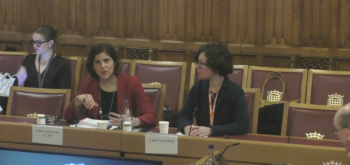The Select Committee on Science and Technology in the House of Commons has published its second report into forensic science, writes Alistair Logan.
- Alastair Logan is a retired solicitor who represented the Guildford Four and Maguire Seven and the defendants in eight other terrorist trials between 1974 and 1985. Alastair has represented many applicants in the European Court of Human Rights and now retired continues to work in the field of human rights. He was awarded an OBE for services to justice in 2002.
This is against the background that the Government, without consultation of the principal stakeholders involved including the Lord Chief Justice, the Director of Public Prosecutions, the Forensic Science Regulator (FSR) and the Government’s Chief Scientific Adviser, decided in December 2010 to close the Forensic Science Service. The only body consulted by the Government was the Association of Chief Police Officers, a body with a lamentably poor record of understanding forensic science and its application to the detection and prosecution of crime. It is also a body that the Government is currently marginalising and reducing its influence in policing by cutting its central funding and removing some of its functions.
The decision to close the Forensic Science Service was taken in December 2010 and by the time the Select Committee had been appraised of the decision and had been able to undertake a preliminary investigation the closure process was already so far advanced that it could not be halted. As the Committee stated: ‘Forensic Science in England and Wales has been in a near constant state of flux for over a decade.’ The Forensic Science Service (FSS) held the majority of the forensics market, provided levels of skill over a very wide area which no individual private forensics science provider (PFSP) could match. It also employed over 2000 forensic scientists. The Committee held an inquiry in 2011 into the decision to close the FSS and expressed grave concerns in its first report about the Home Office’s decision-making process and the wider impacts of closing the FSS. It also criticised the principal justification offered by the Home Office for the decision to close the FSS namely that it was losing £2 million per month as an inflated figure which took no account of the real likelihood that the figure would be reduced over a period of time. Moreover as an integral part of the criminal justice system (CJS) it appeared to be the only part of it that the government believed should be making a profit despite the fact that historically it had never been required to do so.
The FSS closed in March 2012 after a 15 month transition period where its work, assets and some of its staff were transferred elsewhere. However some 1600 of its staff were lost to forensic science because most were unable and some were unwilling to seek employment in the new competitive forensic market. The committee found that the direct costs to the Home Office of closing the FSS appeared to have been well-managed but nonetheless the figure was well in excess at £300 million of the £100 million figure that the government offered as an estimated cost of closure. The Committee found, however, that the Government was ‘weak in recognising the wider costs to the criminal justice system (CJS) and demonstrating value for money to the taxpayer’. They have recommended that the Home Office and ACPO establish a working group to review the accounting practices of police forces in an attempt to overcome the lack of information and transparency in relation to total police expenditure on forensic science. All that the witnesses could provide to the Committee were estimates which differed significantly from each other as to the current and future spend on forensic science facilities as well as being seriously less than the figures provided for expenditure on forensic science before the decision to disband the FSS.
Forensic Archive Ltd (FAL), a small remnant of the FSS, remains and has custody of the FSS’s archives. New materials emanating from cases passed to PFSPs or dealt with in-house by police forces will not be added to the archives, the Home Office has decided, and therefore it will become increasingly redundant with time. The Committee calls this ‘fragmentation by stealth’. The Government should physically consolidate all archived forensic materials whether created before or after the decision to close the FSS and create a common indexing system. It should also be clear how materials should be archived, as the current guidance is outdated. Leaving 43 Police Forces to decide if, how and where to archive their forensic materials is a recipe for disaster and will lead to 43 different systems, destroy the accumulated experience that the FSS archive represents, deal a mortal blow to cold case reviews and destroy the concept of a forensic service serving the CJS.
Many police forces have decided to create in-house forensic facilities serving individual forces or groups of forces. This removes from the competitive market, which the Government hailed as the saviour of forensic science, a large section of the market and will inevitably lead to downsizing of the bigger PFSP and the demise of others. This was recognised by all save the Government before the decision to close the FSS as Angela Gallop, a senior forensic scientist who finally nailed Gary Dobson and David Norris for the murder of Stephen Lawrence, stated in a letter to the Times in 2010:
‘The real problem is that forensic science is becoming reduced to a series of tests to be bought and sold like police uniforms and patrol cars, and where an increasing amount of testing is being performed within police forces themselves. This means that there is less work for independent forensic laboratories, and less and less room for clever investigative strategies where tests are broken down into their component parts and woven into complex “tapestries”.’
The market will suffer the double whammy of the loss of skills and techniques that once made the FSS a world leader and the envy of many other countries. Some police forensic laboratories have failed to make sufficient progress towards achieving accreditation to the same quality standard (ISO 17025) as PFSPs. The FSR regulates the PFSPs but not the police. The Committee strongly recommended that police laboratories that conduct forensic science should achieve the same accreditation despite the fact that the Government has chosen not to commit to the Council Framework Decision requiring all forensic science providers to be accredited to ISO 17025 for DNA and finger-marks. The Forensic Science Regulator (FSR) has therefore a key role in ensuring compliance with quality standards but lacks the statutory powers to do so and the Government has refused to contemplate giving those powers to him. The Committee reiterated its call in 2011 in its first report for the Government to bring forward proposals for statutory powers for the FSR.
The Chair of the Committee Andrew Miller MP observed in relation to the release of the second report of the Committee:
‘We have reiterated our previous call for the Government to bring forward proposals for statutory powers for the FSR. This is particularly important given the disparate nature of forensic science provision across public and private sector. There must be a level playing field and in particular the police should work to the same standards as they demand from private providers.’
The closure of the FSS has had another consequence. Serious crimes are going unsolved because Britain has failed to keep up-to-date with DNA technology according to one of the founding fathers of genetic fingerprinting. According to Sir Alec Jeffreys the country has gone from ‘pole position to banana republic’ in this area of investigation since the closure of the FSS.
The FSS undertook research and development as part of its remit. Its skills were available to all both in the UK and abroad. Now the absence of any focussed funding and the advent of intellectual property claims by PFSPs who chose to conduct research means that it is well-nigh impossible to obtain research funding and those universities who have a department of Forensic Science are likely to be the only bodies who will undertake research in the future but will have to compete with other more lucrative scientific developments to acquire funding. Forensic science is not, as the Committee observed ‘a priority of the Research Councils’. As a result, the UK risks falling behind on the exploitation of new research and technologies. It is already using outdated technology and has been criticised in Europe for doing so. The Committee urged the Government to re-evaluate the current R&D landscape and identify where reliance on outdated technologies may be jeopardising criminal justice.
The Committee reflected the message from many of its witnesses when it said: ‘There is great concern about the future of the forensics market and that forensic science providers may not be willing to invest further in a shrinking market. We consider that resolving problems with forensic procurement processes may partly help to stabilise the market and increase career stability for forensic scientists. In our 2011 inquiry on the FSS, we called for the Government to consult on and determine a wider strategy for forensic science. In the absence of this, the Government runs the risk of continuing the pattern of short-sighted decision-making that led to the demise of the FSS and the creation of an unstable market for the remaining commercial providers.’
The problems for lawyers representing clients whose cases involve or should involve the application of forensic science are manifold. Contracting legal aid; a reduction in access to forensic science to examine and, if appropriate, contest the scientific evidence and arguments advanced by the prosecution; the failure to use forensic science ab initio and the loss of potentially exculpatory material; the destruction of scientific materials by poor management, poor storage and poor understanding of what forensic science can do; poor regulation of qualifications leading to ‘junk science’ being given in evidence; miscarriages of justice and failure to identify the real criminal. Cold case reviews will be strangled at birth by the complexity of identifying and accessing relevant forensic materials.
Andrew Miller MP said: ‘Forensic science provides vital evidence to the criminal justice system and if the Government wants to continue being able to put the most serious criminals behind bars it has a duty to protect its health. Unfortunately the current Minister doesn’t think it needs a strategy, instead preferring a hands-off approach. This is the type of thinking that led to the creation of an unstable forensics market, which led to the demise of the Forensic Science Service and now threatens the success of remaining private forensic science providers.’







